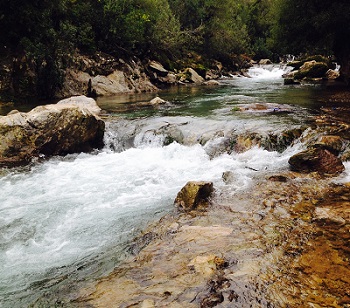Resources, Energy and Infrastructure
Food, water and energy are vital natural resources that vary according to weather and climate. The production is controlled by the varying needs of society and access to water and land.

Natural resources also set conditions for the design of infrastructure such as buildings, roads and bridges; partly through requirements for structural stability and safety, partly through demands on limiting environmental impact.
Research at the Division of Resources, Energy and Infrastructure is aimed at a sustainable and efficient use of the natural resources. The researchers conduct research and education on biology, physics and geoscience processes, technological applications in water and energy, as well as various theoretical methods such as system analysis and data models for geophysical flow.
Technical solutions may be directed at biochar, analysis of energy systems, hydroelectric energy, groundwater pollution, waste management, erosion and pollution to waterways, and dam safety.
The division also conducts research into resource-efficient, sustainable cities. KTH leads the strategic innovation programme Viable Cities, a gathering of stakeholders from industry and commerce, city and municipal councils, research institutions and academia. The purpose of Viable Cities is to contribute to the transition to more sustainable cities, with digitalisation and citizen engagement as strong driving forces.
Research at the division of Resources, Energy and Infrastructure
Staff at the division of Resources, Energy and Infrastructure
